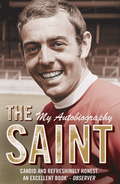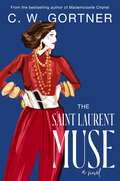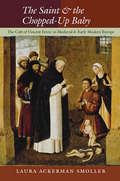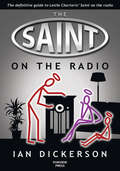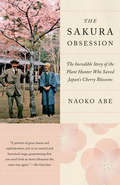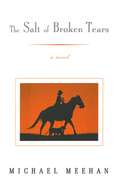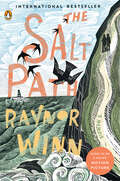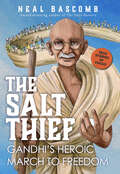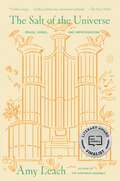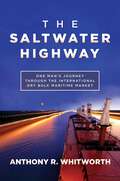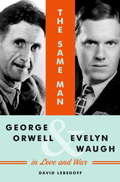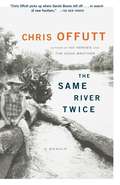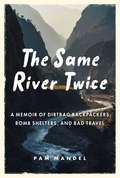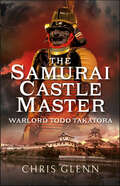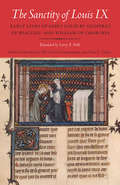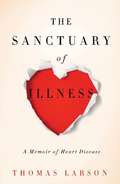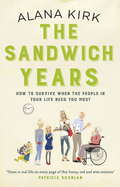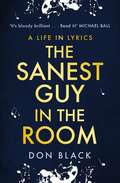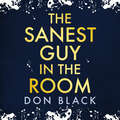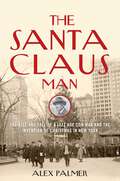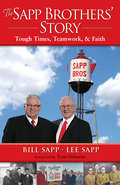- Table View
- List View
The Saint - My Autobiography: The man, the myth, the true story
by Ian St JohnThis is the life story of the legendary Liverpool and Scotland 1960s footballer known as 'The Saint'. Bought by Bill Shankly from Motherwell in 1961, Ian St John was widely thought of as one of the most significant signings ever made by Liverpool FC, and was a key component in Shankly's first successful team. In his autobiography, he reveals how it felt to play for one of the most successful clubs in Britain, and to be part of one of the greatest moments in the club's history; winning the FA Cup in 1965 after 70 years of trying. In the final against Leeds, Ian was to score the winning goal in extra time.However, after the glory would come pain and frustration, as after serving ten years with Liverpool, he was dropped from the team without warning. Here he describes his anger at the betrayal he felt from Bill Shankly, the legendary master of Anfield, and provides an insight into the character of one of Britain's greatest managers. He reveals how his life after Liverpool has been no less uneventful; his playing days in South Africa, career in management and television days with Jimmy Greaves are also explored at length. From this rich mix of football and life, Ian St John tells the compelling story of his journey through a game which has changed, he says, almost beyond belief.
The Saint - My Autobiography: The man, the myth, the true story
by Ian St JohnThis is the life story of the legendary Liverpool and Scotland 1960s footballer known as 'The Saint'. Bought by Bill Shankly from Motherwell in 1961, Ian St John was widely thought of as one of the most significant signings ever made by Liverpool FC, and was a key component in Shankly's first successful team. In his autobiography, he reveals how it felt to play for one of the most successful clubs in Britain, and to be part of one of the greatest moments in the club's history; winning the FA Cup in 1965 after 70 years of trying. In the final against Leeds, Ian was to score the winning goal in extra time.However, after the glory would come pain and frustration, as after serving ten years with Liverpool, he was dropped from the team without warning. Here he describes his anger at the betrayal he felt from Bill Shankly, the legendary master of Anfield, and provides an insight into the character of one of Britain's greatest managers. He reveals how his life after Liverpool has been no less uneventful; his playing days in South Africa, career in management and television days with Jimmy Greaves are also explored at length. From this rich mix of football and life, Ian St John tells the compelling story of his journey through a game which has changed, he says, almost beyond belief.
The Saint Laurent Muse: A Novel
by C. W. GortnerThe Paris runways of the 70s come to wild and splashy life in this novel of fashion's “It Girl” Loulou de la Falaise and her life partying and designing with Yves Saint Laurent, Karl Lagerfeld, and Halston. Nightlife! Gowns! Cocaine! Glamour!It’s the 1970s, and from hippie London to Warhol’s Factory in New York, reluctant aristocrat Loulou de la Falaise is desperately seeking adventure. Having escaped an early, unhappy marriage, she arrives on a whim in Paris—the champagne-soaked heart of the fashion world, where the rigid old world of haute couture and the ffast-paced new world of ready-to-wear are vying for supremacy.Glamour, sex, and cocaine nights fuel the Paris fashion scene. Its crown prince is the soulful and intensely gifted Yves Saint Laurent, whose sexy tuxedos for women and chic Rive Gauche boutiques reflect women’s desire for seductive independence, a desire Loulou knows all too well.Loulou’s bohemian flair immediately captures Saint Laurent’s attention, and they embark on a glorious intimate friendship as artist and muse. Together they revel in the excesses of high society, decadent parties, and the hedonistic underworld of gay nightclubs, where the young and beautiful become prey, and dangerous rivalries start to emerge. Their course collides with eccentric designer Karl Lagerfeld, intent on his own conquest. Lagerfeld’s bitter professional rivalry with Yves divides Paris even in an era when anything goes. As Yves plunges into a dangerous, secret affair with Karl’s enigmatic young companion, and Loulou finds herself falling in love with a colleague’s handsome boyfriend, evanescent illusion and savage deception will bring them to the brink of ruin.Intoxicating and unforgettable, The Saint Laurent Muse is the dramatic imagining of a lifelong friendship between two kindred spirits, and of a tumultuous time and place in fashion history that will never be seen again.
The Saint and the Chopped-Up Baby: The Cult of Vincent Ferrer in Medieval and Early Modern Europe
by Laura Ackerman SmollerVincent Ferrer (1350–1419), a celebrated Dominican preacher from Valencia, was revered as a living saint during his lifetime, receiving papal canonization within fifty years of his death. In The Saint and the Chopped-Up Baby, Laura Ackerman Smoller recounts the fascinating story of how Vincent became the subject of widespread devotion, ranging from the saint's tomb in Brittany to cult centers in Spain, Italy, France, Germany, and Latin America, where Vincent is still venerated today. Along the way, Smoller traces the long and sometimes contentious process of establishing a stable image of a new saint. Vincent came to be epitomized by a singularly arresting miracle tale in which a mother kills, chops up, and cooks her own baby, only to have the child restored to life by the saint’s intercession. This miracle became a key emblem in the official portrayal of the saint promoted by the papal court and the Dominican order, still haunted by the memory of the Great Schism (1378–1414) that had rent the Catholic Church for nearly forty years. Vincent, however, proved to be a potent religious symbol for others whose agendas did not necessarily align with those of Rome. Whether shoring up the political legitimacy of Breton or Aragonese rulers, proclaiming a new plague saint, or trumpeting their own holiness, individuals imposed their own meanings on the Dominican saint. Drawing on nuanced readings of canonization inquests, hagiography, liturgical sources, art, and devotional materials, Smoller tracks these various appropriations from the time of Vincent’s 1455 canonization through the eve of the Enlightenment. In the process, she brings to life a long, raucous discussion ranging over many centuries. The Saint and the Chopped-Up Baby restores the voices of that conversation in all its complexity.
The Saint on the Radio
by Ian DickersonSimon Templar, better known as "the Saint," is perhaps the first truly multimedia hero: By the 1960s his adventures had appeared in books, films, comic-strips and on television. But radio has been the most durable medium for the Saint; from the first series during World War II to the most recent in 2002, fifteen actors have played the modern-day Robin Hood. Of course when you mention The Saint on the radio most people think of Vincent Price, and quite understandably for he was the longest-running and most high-profile incumbent of the halo. But who were the other fourteen - and how did they get their haloes? The Saint on the Radio goes behind-the-scenes of the Saint, providing intriguing detail about the series' creation, its writers, episode synopses, and all the cast over the years. It provides an invaluable guide to the radio adventures of one of the 20th Century's most enduring and endearing heroes.
The Sainte-Chapelle and the Construction of Sacral Monarchy
by Meredith CohenThis book offers a novel perspective on one of the most important monuments of French Gothic architecture, the Sainte-Chapelle, constructed in Paris by King Louis IX of France between 1239 and 1248 especially to hold and to celebrate Christ's Crown of Thorns. Meredith Cohen argues that the chapel's architecture, decoration, and use conveyed the notion of sacral kingship to its audience in Paris and in greater Europe, thereby implicitly elevating the French king to the level of suzerain, and establishing an early visual precedent for the political theories of royal sovereignty and French absolutism. By setting the chapel within its broader urban and royal contexts, this book offers new insight into royal representation and the rise of Paris as a political and cultural capital in the thirteenth century.
The Sakura Obsession: The Incredible Story of the Plant Hunter Who Saved Japan's Cherry Blossoms
by Naoko AbeThe remarkable 1,200-year history of the Japanese cherry blossom tree--and how it was saved from extinction by an English gardener.Collingwood "Cherry" Ingram first fell in love with the sakura, or cherry tree, when he visited Japan on his honeymoon in 1907. So taken with the plant, he brought back hundreds of cuttings with him to England, where he created a garden of cherry varieties. In 1926, he learned that the Great White Cherry had become extinct in Japan. Six years later, he buried a living cutting from his own collection in a potato and repatriated it via the Trans-Siberian Express. In the years that followed, Ingram sent more than 100 varieties of cherry tree to new homes around the globe, from Auckland to Washington. As much a history of the cherry blossom in Japan as it is the story of one remarkable man, the narrative follows the flower from its adoption as a national symbol in 794, through its use as an emblem of imperialism in the 1930s, to the present-day worldwide obsession with forecasting the exact moment of the trees' flowering.
The Salt Of Broken Tears: A Novel
by Michael MeehanOn the edge of the remote salt flats of Australia, a young woman blows in from nowhere and disturbs the precarious equilibrium of a family farm. The boy is fascinated by her, his mother despises her, and the brutish farmhand wants to possess her. When the woman mysteriously disappears, the only trace of her a bloodied dress, the boy sets out in search of an Indian hawker who may or may not have the answers. As he journeys through the broken landscape, accompanied only by his horse and his dog, the boy becomes aware of another party converging murderously on his destination.
The Salt Path: A Memoir
by Raynor WinnSHORTLISTED FOR THE COSTA BOOK AWARDThe true story of a couple who lost everything and embarked on a transformative journey walking the South West Coast Path in England Just days after Raynor Winn learns that Moth, her husband of thirty-two years, is terminally ill, their house and farm are taken away, along with their livelihood. With nothing left and little time, they make the brave and impulsive decision to walk the 630 miles of the sea-swept South West Coast Path, from Somerset to Dorset, through Devon and Cornwall. Carrying only the essentials for survival on their backs, they live wild in the ancient, weathered landscape of cliffs, sea, and sky. Yet through every step, every encounter, and every test along the way, their walk becomes a remarkable and life-affirming journey. Powerfully written and unflinchingly honest, The Salt Path is ultimately a portrayal of home—how it can be lost, rebuilt, and rediscovered in the most unexpected ways.
The Salt Thief: Gandhi's Heroic March to Freedom
by Neal BascombThe dramatic story of Gandhi and India's long march to freedom by award-winning author Neal Bascomb.In 1930, the Indian people, long ruled by their British occupiers, were at a breaking point. No more could many stand the terrible demands of colonial rule. At this pivotal moment, Mohandas Gandhi, who had suffered firsthand for decades the cruelty of his oppressors, saw an opportunity to win his people's freedom. And so, Gandhi led a small band of his followers on a grueling march from his ashram in western India to the Arabian Sea. After 24 days and 241 miles under a withering sun, the marchers arrived on the Dandi seashore. There, Gandhi scooped up a handful of salt to protest the much-hated British salt tax, demonstrating to the world the injustice of Britain's yoke and setting the stage for a popular national uprising.In the dramatic months that followed, Gandhi led acts of nonviolent resistance against the British Raj across the country that would eventually culminate in a brutal crackdown. But Gandhi and those who bravely stood with him faced arrest, beatings, and even bullets without ever raising a hand in retaliation.These events inspired India to demand its liberty from Britain, awakened the world to a movement that would forever change the course of history, and inspired generations of freedom fighters all over the globe.Award-winning author Neal Bascomb chronicles what was arguably Gandhi's most notable campaign in his struggle for India's independence. His focus on nonviolent protest and revolutionary action introduces young readers to a pivotal historical moment with timely implications for today's world.Scholastic Focus is the premier home of thoroughly researched, beautifully written, and thoughtfully designed works of narrative nonfiction aimed at middle grade and young adult readers. These books help readers learn about the world in which they live and develop their critical thinking skills so that they may become dynamic citizens who are able to analyze and understand our past, participate in essential discussions about our present, and work to grow and build our future.
The Salt of the Universe: Praise, Songs, and Improvisations
by Amy LeachNamed a Recommended Read by The New YorkerA book of mischief and improvisation that answers fundamentalism with rage, music, and delight in this earth. A book of mischief and improvisation, The Salt of the Universe answers fundamentalism of all kinds with rage, music, and delight. It asks questions that are urgent, impossible, necessary, and irresistible: Where does freedom live? Why does it sometimes feel so good to be told what to do? What on heaven and earth is the Apicklypse?These and other inquiries arise from Amy Leach’s experience: playing fiddle and piano (and sometimes the organ); her childhood in the Seventh-day Adventist Church, and its many prohibitions (coffee, dancing) and emphasis on the apocalypse. After listening to thousands of sermons from a variety of pulpits, here Leach is offering one of her own. She borrows the words of an old hymn, and says: “This is my story, this is my song.” Accompanied by four-year-old mystics and six-year-old geologists, bears and butterflies and willow trees, she praises not obedience but freedom, not secondhand but firsthand thoughts, not homogeneity but heterogeneity. She champions Emily Dickinson and Jesus over interfering prophets, questions over answers, the soul over the institution, Miles Davis over miles of marching.The Salt of the Universe argues against argument, and against restrictions of all kinds and their limiting effect on our humanity. In this whirlwind of linguistic cartwheels, philosophical shenanigans, and praise songs to the cosmos, Leach reminds us: we must run toward mischief, music, love, the wonders of nature, and the wild joys of all that we don’t yet know.
The Saltwater Highway: One Man's Journey through the International Dry Bulk Maritime Market
by Anthony R. WhitworthA captivating and informative portrait of the business of maritime dry bulk shipping.According to the International Chamber of Shipping, a global trade organization representing 80 percent of the world&’s national shipowner organizations, 90 percent of world trade moves via the oceans—yet very few people know much about the maritime shipping industry. The Saltwater Highway aims to remedy that. Anthony Whitworth&’s travels and experiences throughout the world have given him a unique perspective on how goods move around the globe on the high seas. From the time he was a young voyage accountant in Fednav, one of Canada&’s largest maritime companies, Whitworth has been captivated by this fascinating, complex, multi-faceted industry. With close to five decades primarily in the dry bulk sector of global transport, Whitworth has seen the industry grow and change to meet the challenges of supplying the world with raw materials. From the great shipyards of Asia to the high-stakes finances of some of the largest corporations in the industry, to the ongoing efforts to combat climate change, The Saltwater Highway highlights Whitworth&’s career as it follows the evolution of modern maritime shipping. Based on personal experiences and an in-depth knowledge of how this invaluable trade works, travel along the Saltwater Highway to such far-flung places as the Arctic Circle, the upper regions of the River Plate, the shores of western Scotland, and various capital cities of the world including London, Moscow, and Beijing to meet some of the people who shaped this business and to discover how maritime transportation impacts our daily lives.
The Same Man: George Orwell and Evelyn Waugh in Love and War
by David LebedoffOne climbed to the very top of the social ladder, the other chose to live among tramps. One was a celebrity at twenty-three, the other virtually unknown until his dying days. One was right-wing and religious, the other a socialist and an atheist. Yet, as this ingenious and important new book reveals, at the heart of their lives and writing, Evelyn Waugh and George Orwell were essentially the same man. Orwell is best known for Animal Farm and 1984, Waugh for Brideshead Revisited and comic novels like Scoop and Vile Bodies. However different they may seem, these two towering figures of twentieth-century literature are linked for the first time in this engaging and unconventional biography, which goes beyond the story of their amazing lives to reach the core of their beliefs–a shared vision that was startlingly prescient about our own troubled times.Both Waugh and Orwell were born in 1903, into the same comfortable stratum of England’s class-obsessed society. But at first glance they seem to have lived opposite lives. Waugh married into the high aristocracy, writing hilarious novels that captured the amoral time between the wars. He converted to Catholicism after his wife’s infidelity and their divorce. Orwell married a moneyless student of Tolkien’s who followed him to Barcelona, where he fought in the Spanish Civil War. She saved his life there–twice–but her own fate was tragic.Waugh and Orwell would meet only once, as the latter lay dying of tuberculosis, yet as The Same Man brilliantly shows, in their life and work both writers rebelled against a modern world run by a privileged, sometimes brutal, few. Orwell and Waugh were almost alone among their peers in seeing what the future–our time–would bring, and they dedicated their lives to warning us against what was coming: a world of material wealth but few values, an existence without tradition or community or common purpose, where lives are measured in dollars, not sense. They explained why, despite prosperity, so many people feel that our society is headed in the wrong direction. David Lebedoff believes that we need both Orwell and Waugh now more than ever.Unique in its insights and filled with vivid scenes of these two fascinating men and their tumultuous times, The Same Man is an amazing story and an original work of literary biography.
The Same River Twice: A Memoir
by Chris OffuttAt the age of nineteen, Chris Offutt had already been rejected by the army, the Peace Corps, the park rangers, and the police. So he left his home in the Kentucky Appalachians and thumbed his way north -- into a series of odd jobs and even stranger encounters with his fellow Americans. Fifteen years later, Offutt finds himself in a place he never thought he'd be: settled down with a pregnant wife. Writing from the banks of the Iowa River, where he came to rest, he intersperses the story of his youthful journeys with that of his journey to fatherhood in a memoir that is uniquely candid, occasionally brutal, and often wonderfully funny. As he reckons with the comforts and terrors of maturity, Offutt also discovers what is best in life and in himself.
The Same River Twice: A Memoir of Dirtbag Backpackers, Bomb Shelters, and Bad Travel
by Pam MandelAcclaimed travel writer Pam Mandel's thrilling account of a life-defining journey from the California suburbs to Israel to the Himalayan peaks and back. Given the choice, Pam Mandel would say no and stay home. It was getting her nowhere, so she decided to say yes. Yes to hard work and hitch-hiking, to mean boyfriends and dirty travel, to unfolding the map and walking to its edges. Yes to unknown countries, night shifts, language lessons, bad decisions, to anything to make her feel real, visible, alive. A product of beige California suburbs, Mandel was overlooked and unexceptional. When her father ships her off on a youth group tour of Israel, he inadvertently catapults his seventeen-year-old daughter into a world of angry European backpackers, seize-the-day Israelis, and the fall out of cold war-era politics. Border violence hadn't been on the birthright tour agenda. But then neither had domestic violence, going broke, getting wasted, getting sick, or getting lost. With no guidance and no particular plan, utterly unprepared for what lies ahead, Mandel says yes to everything and everyone, embarking on an adventure across three continents and thousands of miles, from a cold water London flat to rural Pakistan, from the Nile River Delta to the snowy peaks of Ladakh and finally, back home to California, determined to shape a life that is truly hers. An extraordinary memoir of going away and growing up, The Same River Twice follows Mandel's tangled journey and shows how travel teaches and changes us, even while it helps us become exactly who we have been all along.
The Samurai Castle Master: Warlord Todo Takatora
by Chris GlennWhen the samurai warlord and respected castle architect Todo Takatora died in 1630, the funeral attendants responsible for preparing his body were shocked to note that there was not a single part of his body not scarred or disfigured by sword, spear, glaive or matchlock gun wound. Todo Takatora lived a life that unfolds like a drama. Born to a small landholding samurai family, the maverick youth worked his way to the top, becoming one of the most successful of daimyo warlords. He had served on the front lines of some of the most violent of battles, turning points that forged the nation. In a land and time in which loyalty was held dear, he changed his allegiances a record seven times, serving a record ten lords, more than any other samurai in history. Because of this, he has long been held in contempt by the Japanese. Standing 6 feet tall in a time when the average Japanese man stood between 5 and 5 1/2 feet, Todo Takatora was a giant among men. He died aged 74, when the normal life span was around 50. He was also the finest, most innovative of castle architects, responsible for the design and construction of over 30 of the strongest, most innovative Japanese castles and structures, and influencing samurai castle construction across Japan. In explaining his life, his reasons for having served so many lords, his achievements in battle and in castle design, his political and personal ideals and how these attributes were shaped during the course of his adventurous life, this book will reveal the man, and show why Takatora deserves the epithet of National Hero. In this fascinating biography, the first ever published in the English language, Chris Glenn explores Todo Takatora’s remarkable, and influential, life, the battles he fought in, the political intrigues he was part of, as well as detailing the magnificent castles he built.
The Sanctity of Life and the Criminal Law
by Dennis J. Baker Jeremy HorderDescribed by The New York Times as 'Britain's foremost scholar of criminal law', Professor Glanville Williams was one of the greatest academic lawyers of the twentieth century. To mark the centenary of his birth in 2011, leading criminal law theorists and medical law ethicists from around the world were invited to contribute essays discussing the sanctity of life and criminal law while engaging with Williams' many contributions to these fields. In re-examining his work, the contributors have produced a provocative set of original essays that make a significant contribution to the current debate in these areas.
The Sanctity of Louis IX: Early Lives of Saint Louis by Geoffrey of Beaulieu and William of Chartres
by Geoffrey Of Beaulieu William Of ChartresLouis IX of France reigned as king from 1226 to 1270 and was widely considered an exemplary Christian ruler, renowned for his piety, justice, and charity toward the poor. After his death on crusade, he was proclaimed a saint in 1297, and today Saint Louis is regarded as one of the central figures of early French history and the High Middle Ages. In The Sanctity of Louis IX, Larry F. Field offers the first English-language translations of two of the earliest and most important accounts of the king’s life: one composed by Geoffrey of Beaulieu, the king’s long-time Dominican confessor, and the other by William of Chartres, a secular clerk in Louis’s household who eventually joined the Dominican Order himself. Written shortly after Louis’s death, these accounts are rich with details and firsthand observations absent from other works, most notably Jean of Joinville’s well-known narrative The introduction by M. Cecilia Gaposchkin and Sean L. Field provides background information on Louis IX and his two biographers, analysis of the historical context of the 1270s, and a thematic introduction to the texts. An appendix traces their manuscript and early printing histories. The Sanctity of Louis IX also features translations of Boniface VIII’s bull canonizing Louis and of three shorter letters associated with the earliest push for his canonization. It also contains the most detailed analysis of these texts, their authors, and their manuscript traditions currently available.
The Sanctuary of Illness: A Memoir of Heart Disease
by Thomas LarsonWe all know someone who has suffered a heart attack. But, how often do we learn the intimate, potentially life-saving details that accompany coronary disease? In The Sanctuary of Illness, Thomas Larson (The Memoir and the Memoirist; The Saddest Music Ever Written) gives a powerful and personal inside tour of what happens when our arteries fail. He chronicles the three heart attacks in five years that he survived, and the emergency surgeries that saved his life each time. Slowly waking up to the genetic legacy and dangerous diet that pushed him to the brink, he reveals a path to healing that he and his partner, Suzanna, discovered together. Told with urgency and sensitivity, The Sanctuary of Illness is a subtle reminder that heart disease seldom affects just one heart.
The Sandwich Years: How to survive when the people in your life need you most
by Alana KirkThe Sandwich Years is the heartfelt, inspirational story of the bond between mothers and daughters, and how one woman - through caring for the person she had relied on the most - finally found herself. Alana Kirk, married with two children and a third on the way, often found herself stretched between the various demands on her time - parenting, marriage, work, friendship, self. But when her mother suffered a massive stroke, just days after the birth of daughter Ruby, Alana's life became unrecognisable.The next five years - 'the sandwich years' - were a time of heartbreak and difficult choices as Alana lost herself amid part-time caring for her mother, supporting her father and parenting three young daughters, while also attempting to get her career back on track. But it was also a time of growth and love as Alana rediscovered the joy her loved ones bring to her life, and learned how to find a way back to herself.The Sandwich Years is a celebration of mothers and daughters, and everyday warriors.(Previously published as Daughter, Mother, Me)
The Sanest Guy in the Room: A Life in Lyrics
by Don BlackTHE SUNDAY TIMES BESTSELLER'. . . a compelling memoir. Breezy and unpretentious, The Sanest Guy in the Room is a delightful collection of memories, insider information and after-dinner anecdotes' The Times'Brilliant stories and wonderful behind-the-scenes glimpses of a life and career in show-business . . . It's bloody brilliant . . . Read it!' Michael BallDon Black is the songwriter's songwriter, a composer's dream collaborator, and the man behind some of the twentieth century's greatest musical numbers.Black made his first foray into the glittering world of showbiz as a stand-up, before realising his error and focusing on his lifelong passion instead - music. Shirley Bassey, Michael Jackson, Quincy Jones, Henry Mancini and Barbra Streisand are just some of the artists Black has worked with over the years - not to mention his frequent collaborator, West End legend Andrew Lloyd Webber - in what can only be described as a remarkable musical career. Yet, never one to court fame, Black has always remained what Mark Steyn coined as 'the sanest guy in the room'.Interwoven with the stories behind songs such as 'Diamonds are Forever' and 'Born Free' are vignettes of Black's life with his beloved wife Shirley, who died in March 2018, after almost sixty years of marriage. Black writes movingly about how the enormity of his grief changed his life, and how the dark days are slowly turning into dark moments.The Sanest Guy in the Room is a rich and delightful paean to a life lived through song. It reveals the essence of Black's craft, looks at those who have inspired him and allows us to understand what made those icons tick. It is also a poignant tribute to Shirley, his biggest inspiration. Told with wit, warmth and great humour, this is Don Black's astonishing musical journey and an insight into a life behind the lyrics.
The Sanest Guy in the Room: A Life in Lyrics
by Don BlackTHE SUNDAY TIMES BESTSELLER'. . . a compelling memoir. Breezy and unpretentious, The Sanest Guy in the Room is a delightful collection of memories, insider information and after-dinner anecdotes' The Times'Brilliant stories and wonderful behind-the-scenes glimpses of a life and career in show-business . . . It's bloody brilliant . . . Read it!' Michael BallDon Black is the songwriter's songwriter, a composer's dream collaborator, and the man behind some of the twentieth century's greatest musical numbers.Black made his first foray into the glittering world of showbiz as a stand-up, before realising his error and focusing on his lifelong passion instead - music. Shirley Bassey, Michael Jackson, Quincy Jones, Henry Mancini and Barbra Streisand are just some of the artists Black has worked with over the years - not to mention his frequent collaborator, West End legend Andrew Lloyd Webber - in what can only be described as a remarkable musical career. Yet, never one to court fame, Black has always remained what Mark Steyn coined as 'the sanest guy in the room'.Interwoven with the stories behind songs such as 'Diamonds are Forever' and 'Born Free' are vignettes of Black's life with his beloved wife Shirley, who died in March 2018, after almost sixty years of marriage. Black writes movingly about how the enormity of his grief changed his life, and how the dark days are slowly turning into dark moments.The Sanest Guy in the Room is a rich and delightful paean to a life lived through song. It reveals the essence of Black's craft, looks at those who have inspired him and allows us to understand what made those icons tick. It is also a poignant tribute to Shirley, his biggest inspiration. Told with wit, warmth and great humour, this is Don Black's astonishing musical journey and an insight into a life behind the lyrics.
The Sanest Guy in the Room: A Life in Lyrics
by Don BlackTHE SUNDAY TIMES BESTSELLER'. . . a compelling memoir. Breezy and unpretentious, The Sanest Guy in the Room is a delightful collection of memories, insider information and after-dinner anecdotes' The Times'Brilliant stories and wonderful behind-the-scenes glimpses of a life and career in show-business . . . It's bloody brilliant . . . Read it!' Michael BallDon Black is the songwriter's songwriter, a composer's dream collaborator, and the man behind some of the twentieth century's greatest musical numbers.Black made his first foray into the glittering world of showbiz as a stand-up, before realising his error and focusing on his lifelong passion instead - music. Shirley Bassey, Michael Jackson, Quincy Jones, Henry Mancini and Barbra Streisand are just some of the artists Black has worked with over the years - not to mention his frequent collaborator, West End legend Andrew Lloyd Webber - in what can only be described as a remarkable musical career. Yet, never one to court fame, Black has always remained what Mark Steyn coined as 'the sanest guy in the room'.Interwoven with the stories behind songs such as 'Diamonds are Forever' and 'Born Free' are vignettes of Black's life with his beloved wife Shirley, who died in March 2018, after almost sixty years of marriage. Black writes movingly about how the enormity of his grief changed his life, and how the dark days are slowly turning into dark moments.The Sanest Guy in the Room is a rich and delightful paean to a life lived through song. It reveals the essence of Black's craft, looks at those who have inspired him and allows us to understand what made those icons tick. It is also a poignant tribute to Shirley, his biggest inspiration. Told with wit, warmth and great humour, this is Don Black's astonishing musical journey and an insight into a life behind the lyrics.
The Santa Claus Man: The Rise and Fall of a Jazz Age Con Man and the Invention of Christmas in New York
by Alex PalmerThe true story of John Duval Gluck, Jr., who in 1913 founded the Santa Claus Association, which had the sole authority to answer Santa's mail in New York City. He ran the organization for 15 years, gaining fame for making the myth of Santa a reality to poor children by arranging for donors to deliver the toys they requested, until a crusading charity commissioner exposed Gluck as a fraud. The story is wide in scope, interweaving a phony Boy Scout group, kidnapping, stolen artwork, and appearances by the era's biggest stars and New York City&’s most famous landmarks. The book is both a personal story and a far-reaching historical one, tracing the history of Christmas celebration in America and the invention of Santa Claus.
The Sapp Brothers' Story: Tough Times, Teamwork, & Faith
by Tom Osborne Bill Sapp Lee SappThrough their strong work ethic and faith in God—and in each other—the Sapp brothers rose above early adversity to become some of the most respected and successful leaders in the Midwest. Forming the Sapp Brothers Truck Stops in the 1970s and going on to build the Sapp Brothers Petroleum Company, this family has been a Nebraska legend that built business for the state and invested in many state-sponsored organizations. Their "coffee pot" water tower is a symbol of their first truck stops and a Nebraska icon. Keeping integrity and humility as the focus of their professional and personal lives throughout the years, the Sapp brothers have proven that nice guys can finish first and that the American dream is still alive and well.
